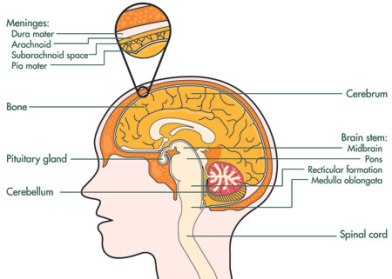

BM(Hons) MD FRCS(Neurosurgery)
Consultant Neurosurgeon


A meningioma is a tumour that has grown from the tissues that line the brain, called meninges. The vast majority of meningiomas are entirely benign (WHO grade I) and usually grow as a lump compressing the adjacent brain. Occasionally they may also invade the skull bone and they may compress or wrap themselves around blood vessels or nerves in the head. They produce symptoms like other brain tumours.

Most meningiomas are completely benign (grade I) but rarely they can behave more like a malignant tumour, invading adjacent tissues and growing rapidly (a typical - grade II or anaplastic - grade III). Most meningiomas can be cured, but this depends on their location and involvement of other tissues or structures.
The best treatment for a meningioma depends on a number of factors
The best treatment, therefore, varies from one patient to another. For some patients there may be no need for any treatment at all; in others it may be advisable to have a combination of treatments e.g. surgery, radiosurgery, radiotherapy and chemotherapy.
The optimal treatment for each patient is now determined by a panel of specialists in most neurosurgical units in the UK. This panel (multi-disciplinary team - MDT) will consist of neurosurgeons (with specific expertise in brain tumours), neuro-oncologists (specialists in radiotherapy and chemotherapy for brain tumours), neuroradiologists (specialist in interpreting brain scans) and neuropathologists (make the diagnosis by examining the biopsies under the microscope). This opinion will be discussed with the patient by his treating doctors (often a neurosurgeon initially) but ultimately, only the patient can decide which treatments he wishes to undergo.
For tumours treated by surgery, the prognosis depends primarily on the extent of the surgical resection, which is largely determined by the location of the tumour. If it was possible for your surgeon to remove all of the tumour with a margin of normal meninges around it, then it is very unlikely to recur. In cases where it is not possible to remove the entire tumour and it's origin, the chance of recurrence is higher. The likelihood of recurrence is also influenced by grade; with the rare grade II and III tumours more likely to re-grow. For tumours treated with stereotactic radiosurgery there is also a very high chance of tumour control ('cure'). Your surgeon will be able to give you a more precise indication of the likelihood of recurrence or cure.